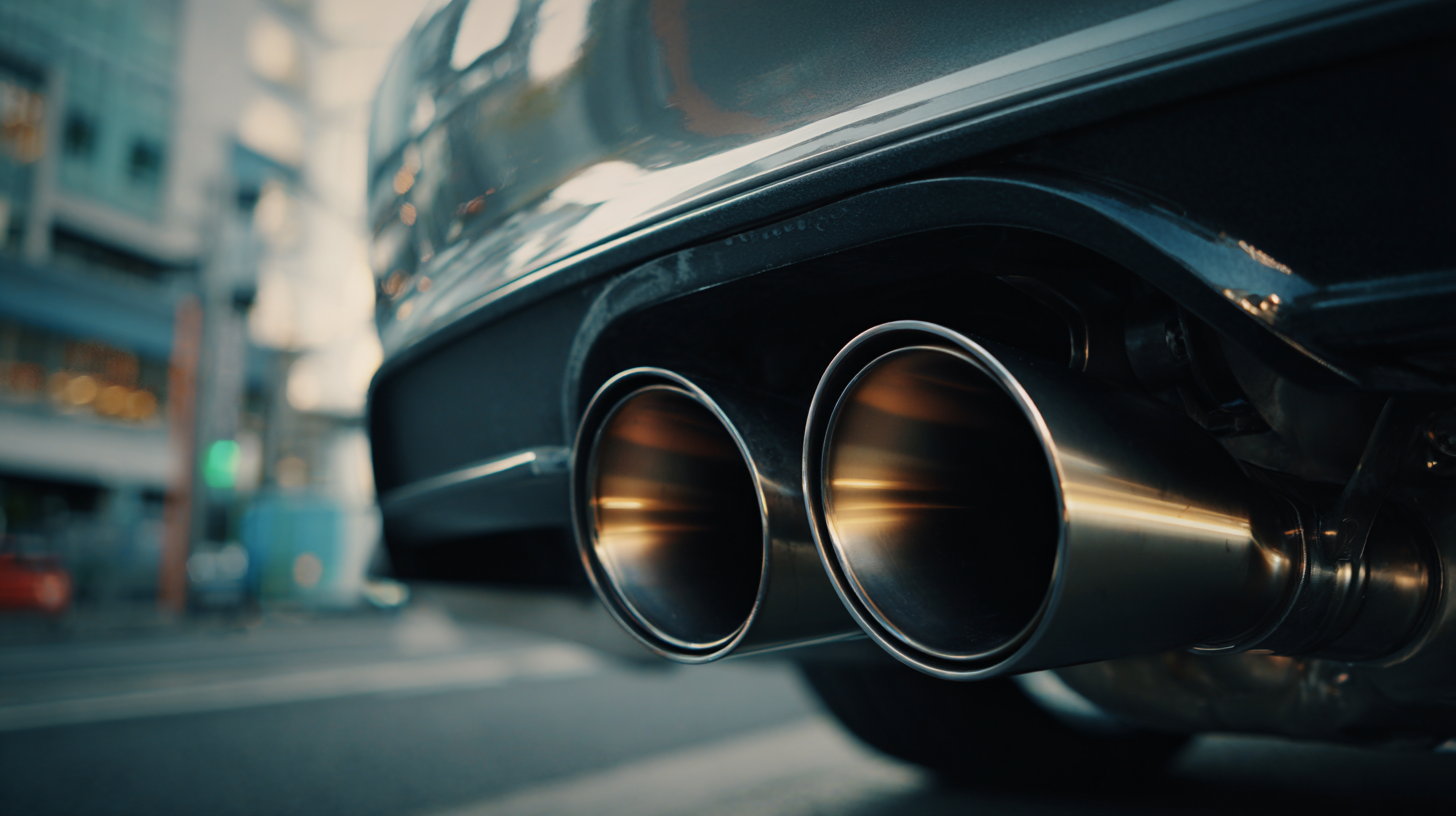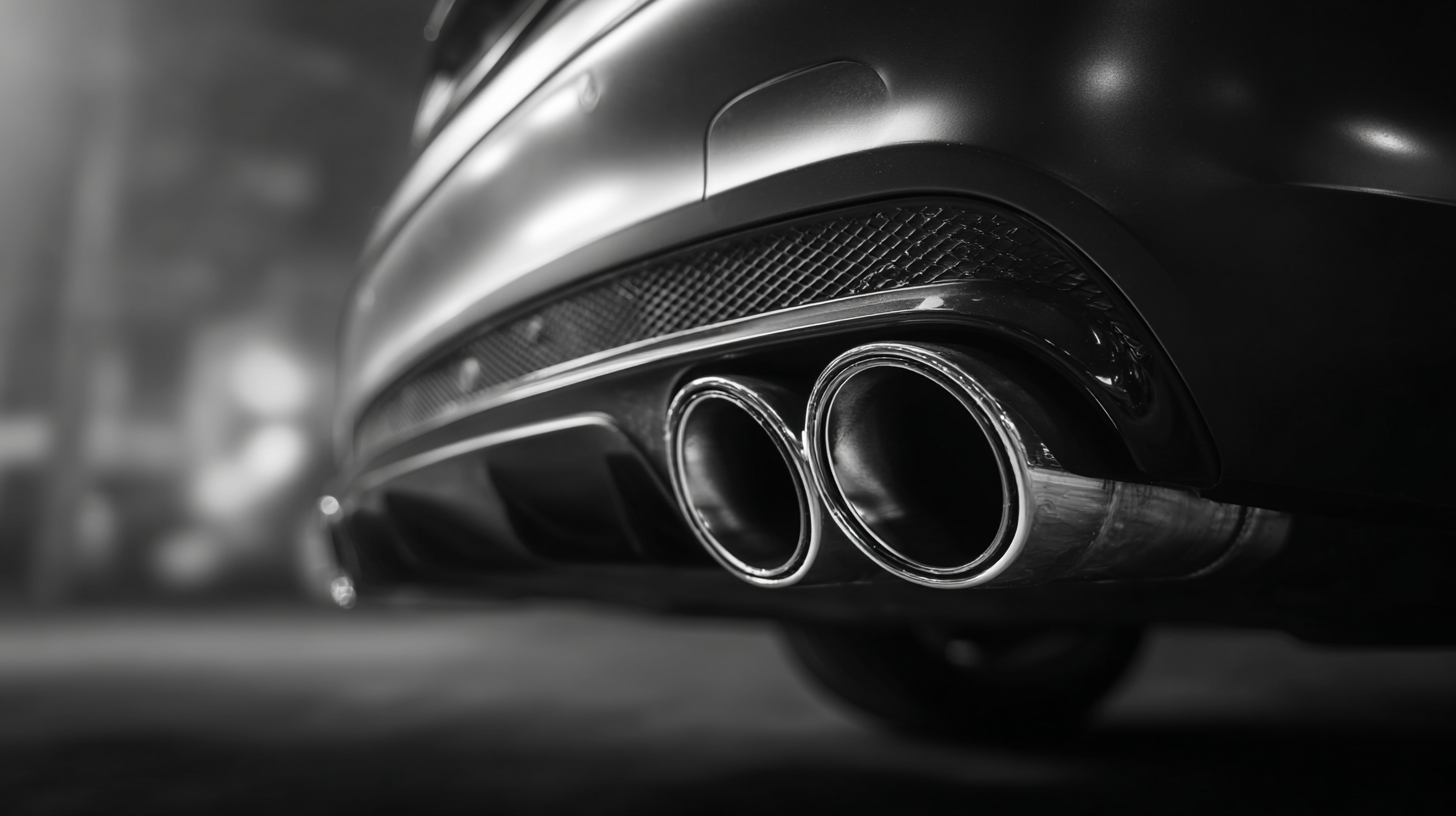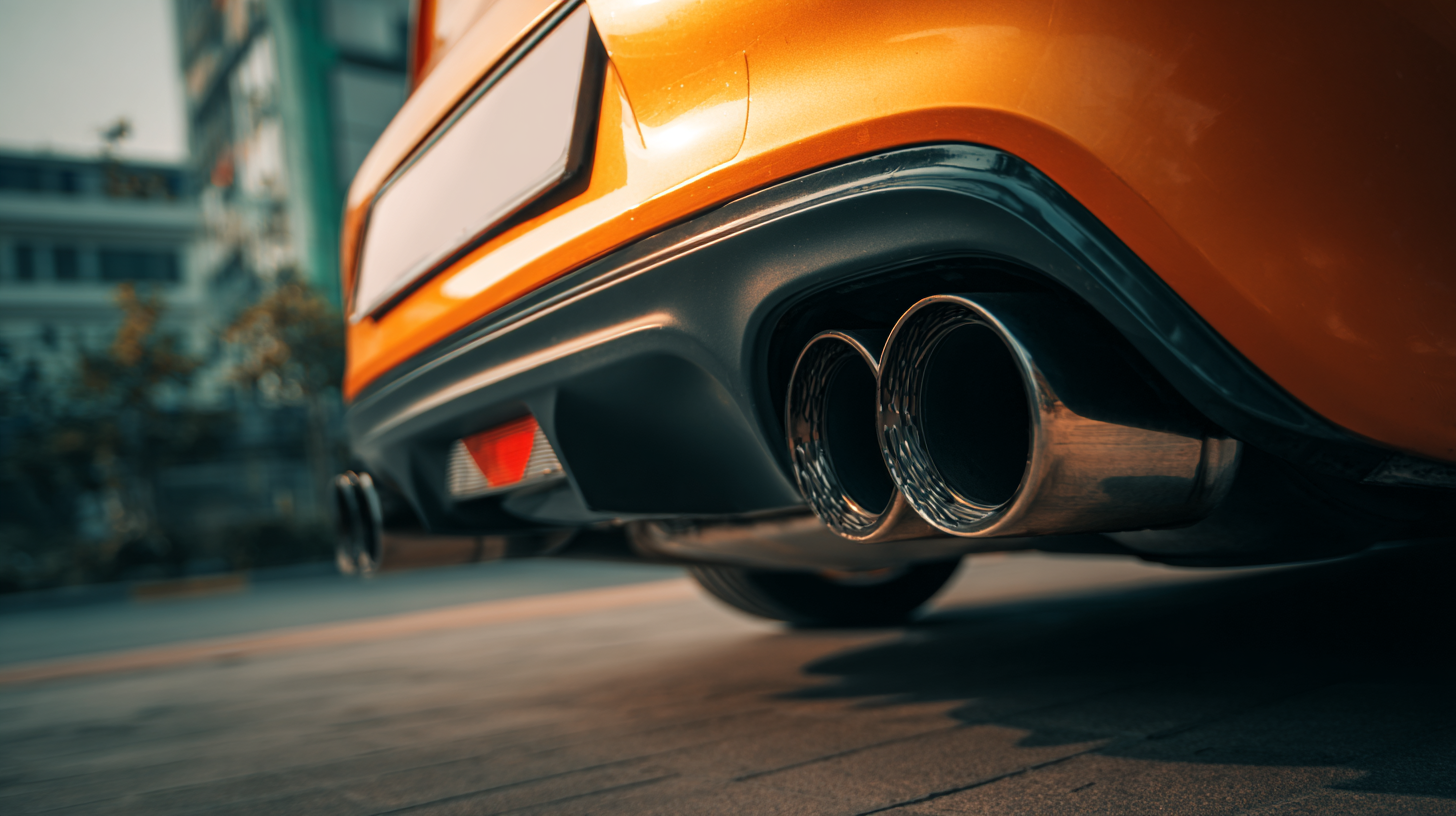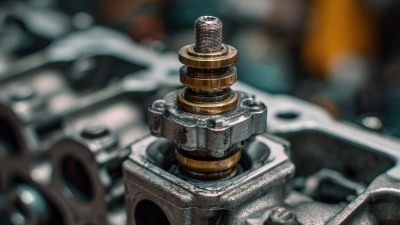Understanding the Impact of Downpipe Exhaust on Your Vehicle Performance and Sound Quality
The performance and sound quality of your vehicle can be significantly influenced by the choice of its exhaust system, particularly the Downpipe Exhaust. According to a comprehensive report by the Specialty Equipment Market Association (SEMA), modifications to the exhaust system can yield an increase in horsepower by up to 10-15%, depending on the vehicle and its engine configurations. Additionally, the right downpipe can enhance exhaust flow, reduce turbo lag, and provide a more aggressive sound profile. This is crucial for performance enthusiasts seeking to optimize their vehicle's capabilities while also experiencing a more exhilarating auditory sensation. Understanding the implications of a Downpipe Exhaust not only allows for better performance tuning but also contributes to the overall driving experience, ensuring that enthusiasts can enjoy both power and sound quality on the road.
Benefits of Upgrading to a Downpipe Exhaust System
Upgrading to a downpipe exhaust system offers significant advantages that can transform both the performance and sound quality of your vehicle. One of the primary benefits is improved exhaust flow. A downpipe typically features larger diameter tubing compared to the factory-installed component, allowing for a more efficient expulsion of exhaust gases. This increased flow can lead to noticeable gains in horsepower and torque, especially when combined with other performance modifications. As a result, your vehicle can deliver more power and acceleration, enhancing the overall driving experience.
Additionally, a downpipe exhaust system alters the acoustic profile of your vehicle. With a more aggressive design, it often produces a deeper, more exhilarating sound that can elevate the driving excitement. Enthusiasts appreciate the sportier exhaust note that comes with this upgrade, making the vehicle feel more connected to the driver.
Furthermore, many aftermarket downpipes are designed to minimize restrictions, which can create a more aggressive tone without excessive drone at cruising speeds. This blend of performance improvement and enhanced sound quality makes upgrading to a downpipe exhaust system a worthy consideration for any car enthusiast looking to elevate their vehicle's capabilities.

Key Performance Metrics Enhanced by Downpipe Exhausts
Downpipe exhausts play a crucial role in enhancing a vehicle's performance metrics, particularly when it comes to horsepower, torque, and throttle response. By facilitating improved airflow, downpipe exhausts reduce back pressure in the exhaust system, allowing the engine to breathe better. This increased efficiency translates into noticeable gains in power, particularly in turbocharged vehicles. Enhanced throttle response means that drivers can experience a more dynamic and engaging ride, as the engine reacts more swiftly to acceleration inputs.
Tips for choosing the right downpipe exhaust: Always consider your vehicle type and engine specifications to ensure compatibility. Opt for high-quality materials such as stainless steel to enhance durability and performance. Additionally, be mindful of local regulations regarding exhaust modifications, as some downpipes can increase emissions or noise levels.
Another key performance metric that downpipe exhausts enhance is sound quality. By providing a more direct path for exhaust gases, these systems create a deeper and more aggressive exhaust note. This deeper tone not only enhances the driving experience but also gives your vehicle a sportier character. Be sure to listen to different options and consider aftermarket tuning to achieve the sound profile that best fits your preferences.
How Downpipe Exhaust Affects Engine Sound Quality
The downpipe exhaust system plays a crucial role in shaping the sound quality of your vehicle’s engine. As one of the first components to interact with exhaust gases after the turbocharger, it significantly influences acoustic characteristics. A study conducted by the Society of Automotive Engineers found that a high-performance downpipe can increase exhaust flow by up to 30%, resulting in a deeper and more aggressive sound that many enthusiasts seek. This change in sound is largely due to the reduced backpressure and improved scavenging effect, which allows the engine to expel exhaust gases more efficiently and create a more pronounced exhaust note.
Moreover, the materials used in downpipe construction also affect sound quality. Stainless steel and aftermarket options tend to produce a richer tone compared to stock components. According to a recent report from Engine Builder magazine, vehicles fitted with upgraded downpipes not only exhibit improved power outputs but also a sound quality that is often preferred by drivers who desire a sportier acoustic experience. The differences can be striking, with some drivers noting an enhancement in tonal clarity and resonance frequencies, which contribute to a more thrilling driving experience.
Understanding the Impact of Downpipe Exhaust on Your Vehicle Performance and Sound Quality
Installation Tips for Optimizing Downpipe Performance
When it comes to enhancing your vehicle's performance, the installation of a
downpipe exhaust system can make a significant difference.
Research from the Automotive Performance Institute indicates that the right
downpipe can improve exhaust flow by up to 30%, translating to improved
turbo response and a noticeable increase in horsepower. With careful installation, you can optimize
these benefits and enjoy a deeper, more aggressive sound profile.
Tips for Optimizing Downpipe Performance:
-
Choose High-Quality Materials:
Selecting stainless steel or other durable materials can resist corrosion and maintain structural
integrity over time. This choice not only improves performance but also keeps your exhaust
system sounding great.
-
Proper Fitment is Key:
Ensure that your downpipe is properly aligned and fitted to your vehicle's existing exhaust system.
Misalignment can cause leaks, reduce efficiency, and lead to unwanted noise. Using performance
gaskets can also help create a better seal.
-
Consider Custom Mapping:
After installation, it's wise to update your vehicle's ECU mapping. This adjustment can help
maximize the performance gains from your new downpipe, allowing your engine to operate optimally
with the increased airflow. Data from the Journal of Automotive Engineering
shows that vehicles with tuned ECUs after downpipe installation can see an additional 10-15%
performance increase.
Incorporating these tips during your downpipe exhaust installation will not only enhance your
vehicle’s sound quality but will also ensure you fully leverage the performance benefits.
Maintenance Advice to Maximize the Life of Your Downpipe Exhaust
When it comes to maintaining your vehicle’s downpipe exhaust system, proper care can significantly enhance its longevity and performance. According to a report by the Society of Automotive Engineers, regular inspections and maintenance of exhaust systems can improve their lifespan by up to 30%. Neglecting these components can lead to issues like rust and leaks, which not only impact sound quality but can also reduce engine efficiency.
Tips: Regularly inspect your downpipe for signs of corrosion or damage, especially if you live in areas with harsh weather conditions. Keeping it clean and free from debris can help maintain optimal performance.
Proper installation is crucial for maximizing the effectiveness of your downpipe exhaust. A study published by the International Journal of Automotive Engineering highlighted that improper alignment can hinder exhaust flow, leading to decreased performance by as much as 10%. Additionally, using high-quality materials can resist thermal expansion and contraction better, which is essential for maintaining the integrity of the exhaust system over time.
Tips: Use high-temperature resistant gaskets and bolts during installation. Schedule periodic checks, especially after long drives, to ensure everything remains securely fitted and free from leaks.
 +86 17870576410
+86 17870576410

Home
Company Profile
Products
News
Blog
Contact Us
 Contact Number
Contact Number







